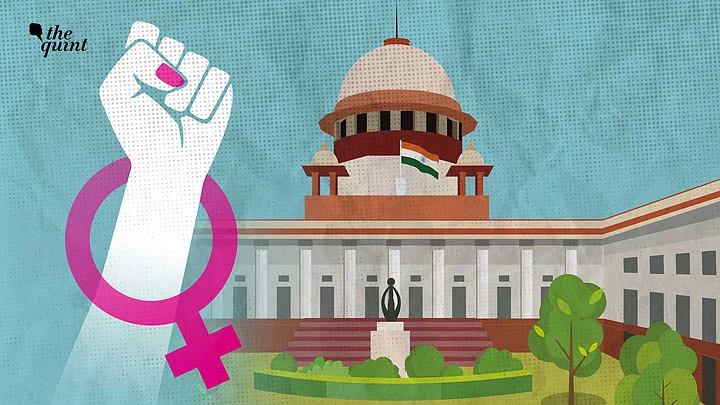Last year, we witnessed several developments that strengthen women's rights in different ways, including judicial pronouncements and legislative developments.
The Supreme Court (SC) released a gender stereotypes handbook with the idea of identifying, understanding, and combating stereotypes about women. It contains a glossary of gender-unjust terms and suggests alternative words or phrases that may be used while drafting pleadings as well as orders and judgments. Given most women-centric judgments were authored by male judges, the SC was successful in espousing an evolved outlook to legal jurisprudence. This served as an embodiment of equity in the justice delivery system.
In 2023, the SC attended to several critical questions that touched upon equality and personal liberty.
In one case (X v Union of India), the SC dealt with a writ petition under Article 32 seeking directions to the Respondents to permit a medical termination of her ongoing pregnancy of over 26 weeks due to post-partum depression and financial constraints. The SC, rejected the request for a medical termination, observing that the protections under Section 3(2B) of the Medical Termination of Pregnancy Act, 1971 were not attracted. The judgement marked an important turn in abortion jurisprudence in India.
In another major development, the Supreme Court in The Secretary, Ministry of Defence v. Babita Puniya held that women cannot be categorically denied Permanent Commission positions and the Armed Forces cannot have gender-discriminatory hiring/recruitment practices. The court held that the manner of granting women officers Permanent Commissions in the army reflected indirect and systemic discrimination.
In the case of Bilkis Yakub Rasool v Union of India, the SC held that the Gujarat government was the incorrect authority to grant remission to 11 men convicted of gang rape in the Bilkis Bano case. It was observed that “There can be no rule of law if there is no equality before the law; and rule of law and equality before the law would be empty words if their violation is not a matter of judicial scrutiny or judicial review and relief and all these features would lose their significance if the courts don’t step in to enforce the rule of law.” This judgement is a testament to the fact that the judiciary is the guardian of the rule of law and the central pillar of a democratic State.
On the legislative front, the parliament passed the law to reserve seats for women in the state assemblies and in the Lok Sabha. As per this new legislation, 33 per cent of seats in the said houses are to be assigned only to female candidates in every election. Admittedly, women empowerment is a lofty albeit weighty objective, one which is characterised by a multiplicity of undertones. Enhanced representation of women in policy-making is one such undertone that is necessary to further this cause.
For this reason, the Women’s Reservation Bill, even with its criticisms (such as deferred implementation of the act, etc.), is a commendable step in the right direction. In the same vein and to complement the forward strides taken by the legislature and the judiciary, representation of women in legal practice is also required.
The recent elevation of 11 women lawyers as senior advocates by the SC adheres to this point. It also stands as a testament to the fact that inclusivity is greatly being welcomed by the legal fraternity. To overcome significant barriers to entry to legal practice, where intersectionality has a key role to play, an ecosystem of women practitioners is necessary. Such an ecosystem can help devise solutions to make different fields of law accessible to women.
A structure aimed at galvanising women practitioners will facilitate mentorship by seasoned players in the legal practice, contribute to the dialogue on gender-specific challenges faced by practitioners in litigation, law firms, in-house etc, and in turn, enhance women’s representation. By doing so, a sturdy support system can be constructed for a key stakeholder of the legal industry, i.e., the female practitioners.
In a male-dominated profession where merit is compounded by the benefit of interpersonal relations, such a futuristic move will supplement the efforts of the judiciary and the legislature to advance the cause of gender equality. Upon fostering an accessible environment, inclusivity in its true sense can be effected.
(Tanvi Dubey is a practising advocate in the Supreme Court of India. Jyotsana Singh is a corporate and technology lawyer. The Authors also want to thank Ms. Esha Chandra for her contribution and assistance in research. This is an opinion article and the views expressed are the author’s own. The Quint neither endorses nor is responsible for them.)
(At The Quint, we question everything. Play an active role in shaping our journalism by becoming a member today.)
